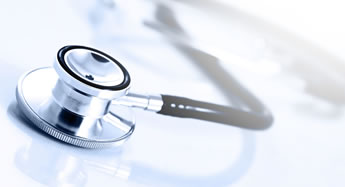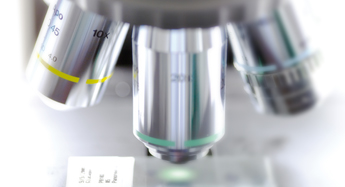Advocate General Sharpston considers notified bodies may be liable to patients using medical devices
October 2016
In May 2015, we reported on a reference made by the German Federal Court ("FCJ") to the Court of Justice of the European Union ("CJEU") on the interpretation of the obligations and liabilities of Notified Bodies under Directive 93/42/EEC (the "Medical Device Directive") in the case C-219/15 Elisabeth Schmitt v TÜV Rheinland LGA Products GmbH. This article discusses Advocate General Sharpston's Opinion (delivered on 15 September 2016) in that case, which is the latest development in the long-running litigation saga relating to the Poly Implant Prothèse ("PIP") breast implant scandal.
Facts
The scandal emerged following an inspection of PIP's premises in March 2010, during which the French regulators discovered that the company had been using industrial grade silicone to manufacture its breast implants, rather than the medical grade silicone required in the approved product specification. The inspection followed a marked increase in the number of reports concerning the safety of the implants and PIP's failure to provide consistent responses to queries raised by the French regulators regarding these concerns. Following the discovery, the French regulators suspended the marketing, distribution, export and use of the implants on 29 March 2010, with other regulators around the world quickly following suit.
A raft of global litigation ensued from those affected by the implants and the company's founder was later imprisoned in December 2013. In 2011, PIP entered into liquidation, leaving potential claimants with little recourse for the damage or losses they claimed to have suffered as a result of the implants. As a result, claimants sought compensation from third parties, including TÜV Rheinland, the Notified Body commissioned by PIP to conduct conformity assessment procedures under the Medical Devices Directive. Elisabeth Schmitt was such a claimant.
Ms Schmitt had silicone breast implants manufactured by PIP fitted in Germany in 2008. Following the outbreak of the scandal, Ms Schmitt had her implants removed in 2012 on medical advice. She subsequently commenced proceedings against TÜV Rheinland in the German courts, in which she sought €40,000 as compensation for non-material damage and a declaration that the Notified Body was liable for any material damage that might arise in future. She argued that an inspection of the delivery notes and invoices in PIP's possession would have made clear to TÜV Rheinland that medical grade silicone had not been used in the manufacture of the implants.
Ms Schmitt was unsuccessful in the lower courts; however she eventually brought an appeal on a point of law before the FCJ. In May 2015, the FCJ lodged the following reference questions at the CJEU regards the nature of the duties of Notified Bodies relating to Class III medical devices under the Medical Devices Directive and the scope of their liability towards patients if they fail to perform them:
- Is it the purpose and intention of the [Medical Devices Directive] that, in the case of Class III medical devices, the Notified Body responsible for auditing the quality system, examining the design of the product and surveillance acts in order to protect all potential patients and may therefore, in the event of a culpable infringement of an obligation, have direct and unlimited liability towards the patients concerned?
- Does it follow from the aforementioned points [points 3.3, 4.3, 5.3 and 5.4] of Annex II to [the Medical Devices Directive] that, in the case of Class III medical devices, the Notified Body responsible for auditing the quality system, examining the design of the product and surveillance is subject to a general obligation to examine devices, or at least to examine them where there is due cause?
- Does it follow from the aforementioned points of Annex II to [the Medical Devices Directive] that, in the case of Class III medical devices, the Notified Body responsible for auditing the quality system, examining the design of the product and surveillance is subject to a general obligation to examine the manufacturer’s business records and/or to carry out unannounced inspections, or at least to do so where there is due cause?
It is interesting to note that proceedings similar to the current German case were also commenced by distributors and patients in France. In November 2013, the Toulon Commercial Court held that TÜV Rheinland had failed in its duties under the Medical Devices Directive and ordered it to make interim payments to the claimants pending further assessment of their claims. However, in July 2015, shortly after the FCJ lodged its reference with the CJEU, the Court of Appeal in Aix-en-Provence reversed the decision, holding, that TÜV Rheinland had complied with its obligations. The approaches taken by the French and German courts highlight the need for clear direction from the CJEU.
The Opinion
Question 1
Question 1 essentially asks whether Notified Bodies are required to protect all potential patients under the Medical Device Directive, and if so, in the event of a breach of their prescribed obligations, will they have direct and unlimited liability towards such patients.

The Advocate General concluded that the CJEU should answer Question 1 in the affirmative. Although she noted that the Medical Devices Directive imposes primary responsibility for compliance of a medical device on manufacturers, the obligations relating to product safety did not solely lie with them. She observed that CJEU case law (C-40/04 Yonemoto) already recognised that national legislation could impose liability on importers for specific obligations arising from EU product safety rules, noting that importers play a relatively minor role in the safety of medical devices. Notified Bodies, however, play a crucial role in the procedure leading up to the marketing of medical devices under the Medical Device Directive. In these circumstances, the Advocate General considered it entirely appropriate that Notified Bodies should in principle be capable of bearing liability under national law to patients and users for culpable failure to fulfil their obligations under the Medical Devices Directive, provided that the principles of equivalence and effectiveness were respected.
Questions 2 & 3
Questions 2 and 3 relate to the scope of Notified Bodies' obligations under the Medical Devices Directive. Specifically whether there was an obligation to examine medical devices and the manufacturer’s business records, and/or to carry out unannounced inspections.
Advocate General Sharpston was of the view that Annex II to the Medical Devices Directive required Notified Bodies to act with all due care and diligence. She considered that in the normal course of things, "a manufacturer can probably be assumed to be operating in accordance with its approved quality system and producing devices complying with the product design and that a Notified Body may therefore proceed upon that assumption". There was no general obligation on Notified Bodies to inspect medical devices, examine the manufacturer's business records or carry out inspections.
However, in the event that the Notified Body is put on notice that a medical device may be defective, it then falls under a duty to determine whether its certification of the device in question may stand (as prescribed under Annex II of the Medical Devices Directive). The precise nature and extent of that duty is to be determined on a case-by-case basis and is a matter for the national court to decide.
Temporal effect
Concerned with the wider implications of the CJEU's decision, the Irish Government submitted that if the Court answered the reference questions in the affirmative, it should limit the temporal effect of its ruling to the date of its judgment. It argued that there was a need for legal certainty and that if the position was to be decided otherwise, there would be a risk of serious negative economic repercussions for Notified Bodies. The Advocate General agreed, subject to where such liabilities were already the subject of insurance cover. Her recommendation to the CJEU was that the Medical Devices Directive should not be interpreted as imposing liability on a Notified Body to a patient or user of a medical device where that liability arose before the date of the CJEU's judgment, save and to the extent that the liability in question may already be the subject of insurance cover taken out by the Notified Body concerned.
Comments

Notified Bodies play a critical role in bringing medical devices to market, but a clear distinction is needed between their obligations and liabilities under the Medical Devices Directive and that of manufacturers. As the Advocate General observed in her Opinion, the role of a Notified Body is primarily a scientific one and they are currently mandated under the Medical Devices Directive to satisfy stringent requirements as to their independence and expertise. She noted that under the Directive, Notified Bodies must act with "the highest degree of professional integrity and the requisite competence in the field of medical devices", and it would run counter to that role for the CJEU to lay down unnecessarily prescriptive requirements. Advocate General Sharpston further observed that CE marking does not make medical devices infallible and the duties of Notified Bodies should be seen in that context.
Notwithstanding the above, Advocate General Sharpston's Opinion recognises that Notified Bodies may be liable to patients and users of Class III medical devices in limited circumstances: there must be a culpable failure in their obligations resulting from the EU product safety rules. Further, the obligations of Notified Bodies under the Medical Devices Directive do not extend to a general obligation to inspect devices, examine manufacturers' business records or carry out unannounced inspections. However, Notified Bodies have a duty to exercise their powers under the Medical Devices Directive where they have been put on notice that a device may be defective.
The Advocate General's Opinion is not binding on the CJEU and the Court may arrive at a different decision. The judges of the CJEU are beginning their deliberations on this case and it is likely they will be mindful of the stricter standards that have been imposed on Notified Bodies in the wake of the PIP scandal through the introduction of Commission Implementing Regulation (EU) No. 920/2013 and the Commission Recommendation of 24 September 2013 on the audits and assessments performed by Notified Bodies. In addition, two new EU Medical Device Regulations are set to replace the existing regulatory framework, which will introduce (amongst other things) greater supervision of Notified Bodies by Member States. It will therefore be interesting to see whether the CJEU will restrict its judgment to Class III medical devices as per the original reference questions or make a wider ruling as to the obligations and liabilities of Notified Bodies in respect of other classes of medical devices.
In any event, it is hoped that the CJEU will provide much needed clarification and legal certainty as to the obligations and liabilities of Notified Bodies under the Medical Devices Directive.
If you have any questions on this article or would like to propose a subject to be addressed by Synapse please contact us.


Tasmina Goraya
Tasmina is an Associate in the Intellectual Property department and specialises in patent litigation, transactional/commercial IP work and life science regulatory matters.
"The Advocate General considered it entirely appropriate that Notified Bodies should in principle be capable of bearing liability under national law to patients, provided that the principles of equivalence and effectiveness were respected."

